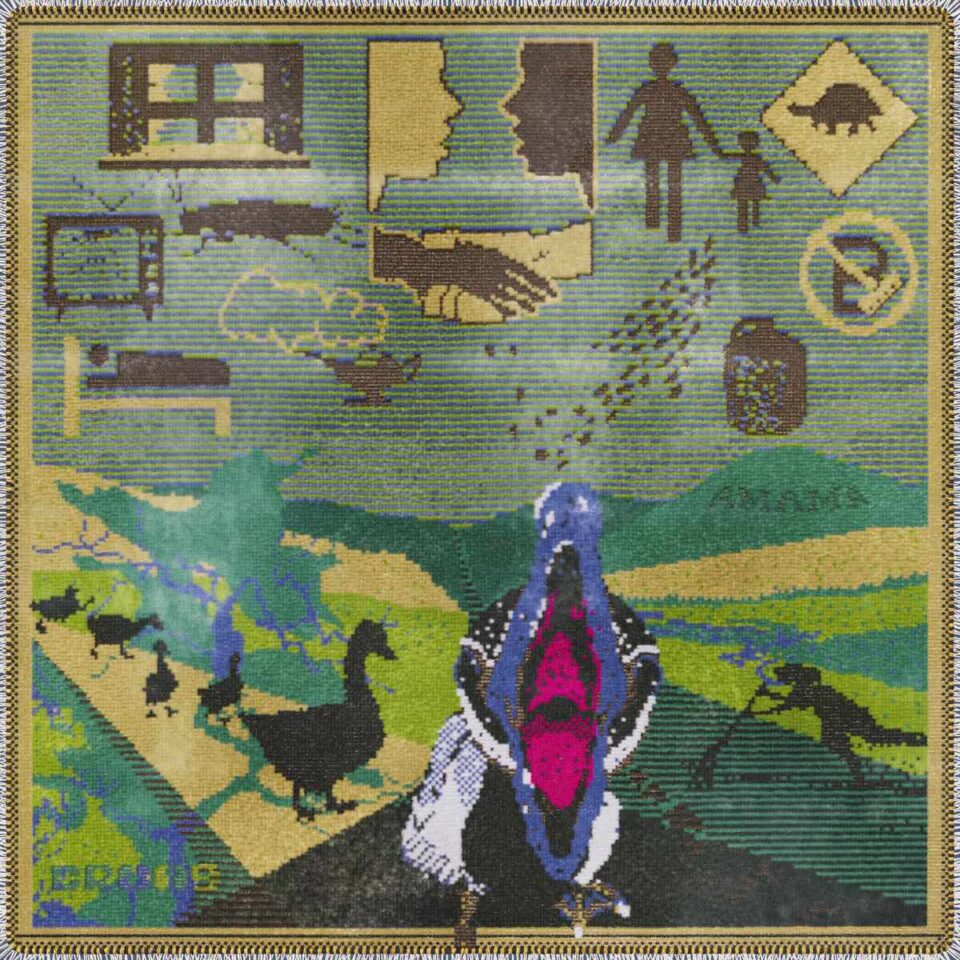Dehd
Poetry
FAT POSSUM
ABOVE THE CURRENT
On their fifth album, Poetry, Chicago’s Dehd have leveled up as lyricists, songwriters, and producers by revealing more about themselves as individuals. The indie-pop trio have always conjured big feelings, but with this record’s theme of opening yourself up to experiences—queer joy, romantic or platonic love, or something painful—their songs have become anthems of acceptance. As always, guitarist/producer Jason Balla and bassist Emily Kempf share lead vocal duties throughout the album, but this time, Poetry feels more like Balla’s coming out party. As co-producer of the album with Whitney’s Ziyad Asrar, his songs focus on complicated feelings—before, during, or after intimate experiences—leaning into his vulnerability and coming out the other side stronger.
Building upon timeless rock ’n’ roll tropes (fast cars, bad boys, broken hearts), opener “Dog Days” cruises the album into a recent past with a pair of bootleg Gucci shades. The trio continues to toy with classic elements, such as the cooing harmonies of “Don’t Look Down” landing the song with a cha-cha-cha. Drummer Eric McGrady has his own fun with genre signifiers, adding a baggy Madchester beat to Kempf’s “Hard to Love”—Dehd’s spiritual sequel to “Bad Love” from 2022’s Blue Skies. On “Shake,” the emotional quiver in Balla’s voice sounds like Bright Eyes by way of Robert Smith, synching up to the song’s frantic vibrations. “Knife” is Poetry’s ode to problematic relationships, as Kempf packs evocative stanzas with lines about longing to be with only one person, while dreaming about killing them in her sleep. Matching the song’s lyrical themes with sonic flourishes, its stabbing percussive rhythm sounds like Eno-produced art-rock.
“Mood Ring” is my favorite moment on the album, as Balla sings joyfully about his “sexy little angel,” a “tough-and-rumble man with a little bit of danger.” When his lyrics turn to the feeling of reeling and spinning, nodding to The Tremeloes with a wink and a smile, it sounds like heaven on Earth. “Pure Gold” is Poetry’s sapphic standout, with Kempf singing about “a friend to sleep in with” who’s also “the kind of girl that I could get with.” As her voice blends with Balla’s, they share their appreciation for casual romance and love that comes in all forms.
Back in March, I caught a lively performance from the trio on the outdoor mainstage of the Treefort Music Fest in Boise, and had an epiphany: Dehd are the next generation’s Beach House, with sharper angles, higher highs, and more grit. Both bands feature singers with utterly distinct, husky-alto voices, draped in masterfully minimalist arrangements. Beach House drifts through Lynchian ambience, while the Mo Tucker–esque beats of Dehd’s standup drummer McGrady make them sound more like The Velvet Underground, with a subtle dose of ’00s yelp infused into indelible hooks.
Beyond the music, there are a few reasons why I can tell Dehd are my kind of people. Alongside their celebrations of queerness and vulnerability as strength, I appreciate the ways they platform smaller artists. I like that I can’t always tell which member is singing, and that their press photo was taken by skateboarding legend Atiba Jefferson. Most of all, I appreciate Dehd’s support for the Palestinian people in Gaza onstage at Treefort. By opening up about themselves, they give a voice to many others.









